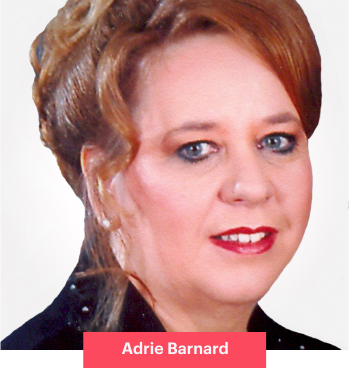

Don’t wing it! Read these expert insights on real estate agent training
Aspiring property practitioners dream of big commissions and flexible schedules, but the path to success starts with a solid foundation. Unlike some professions, becoming a property practitioner doesn't require years of university study. However, proper training equips one with the essential knowledge, skills, and legal understanding to navigate the complexities of the property market and excel in the role.
Interestingly, a recent Prop Data poll revealed a unique trend in real estate training. While traditional methods exist, a significant portion, 74.5% of respondents, reported acquiring their qualifications through in-house training, opting for smaller learning institutions, or even starting with alternative qualifications over the FETC: Real Estate (NQF Level 4).
Real estate training is your key to success
While the path may be different for each property practitioner, experts highlight the value of a sound real estate education for all. Adrie Barnard, Chief Operating Officer at Huizemark Franchising Group, says that since the inception of the educational requirements in 2008, being a property practitioner has become a professional career of choice rather than a last-resort occupation.

“There has been a dramatic shift in the public perception of the professional status of property practitioners, but more importantly in the self-image of the practitioners themselves. Acquiring knowledge of the legal, environmental, and financial influences impacting the real estate environment, and specifically a better understanding of the Estate Agents’ Code of Conduct, has a huge influence on the way practitioners conduct themselves in the marketplace,” she says.
Tyron Bam, Director at TME BAM Realty, says beyond professionalising the industry, real estate training gives clients confidence in their practitioner’s ability. “There is a massive undertaking of trust, accountability, and responsibility that buyers, sellers, landlords, and tenants pursue and it’s crucial to be dealing with credible individuals/companies that are recognised as accredited and deliver results. It shows ethics, morals, and a commitment that you are prepared to elevate this industry by being certified and, more importantly, creating high standards.”
Your real estate training options
As becoming a property practitioner has risen in profile, there are now several options to getting qualified.
Degrees: These are longer and more research-focused qualifications that may require writing a thesis or dissertation. Some examples include:
- Bachelor of Science in Property Studies: University of Cape Town
- Bachelor of Science in Property Development: University of KwaZulu-Natal
- Bachelor of Science (BSc) in Construction Studies: University of the Witwatersrand
- Bachelor of Science in Real Estate: University of Pretoria
Diplomas: More affordable and shorter than a degree, diplomas usually have a practical and specialised focus. Some examples include:
- Diploma in Real Estate: Cape Peninsula University of Technology
- Advanced Diploma in Real Estate: University of Johannesburg
Certificates: These can be completed faster than diplomas and offer industry-specific skills. While they are good options at the start of a career, they can also help professionals keep skills updated to boost career prospects. A popular example includes:
- FETC: Real Estate (NQF Level 4 and NQF Level 5): PropAcademy, Charter Academy, South African Property Academy, and Chartall Business College
In-house certification: Many real estate agencies have their own training initiatives and courses that help them provide key skills needed by their practitioners. Some examples include:
- Rawson Training Academy
- Century 21 University
“In-house training can be an acceptable option provided the facilitator is accredited and well-versed in the practice of real estate and its strenuous deliverables,” says Bam. “Personally, I feel private education providers do have an edge. They are still governed by certain rules, criteria, and ethics. They are required to cater to all individuals who apply and are typically on the ball with industry developments, hands-on, and supportive to make sure those that do commit reach their full potential.”
While Barnard says in-house training can be an option if the agency has been SETA accredited for the qualification, she also agrees that private is the way to go. “The PPRA will only allow a person presenting an official Sector Education and Training Authority (SETA) certificate (or exemption) to write the Professional Designation Examination (PDE). It is a requirement that accredited institutions have subject matter experts presenting the training and performing the assessments on a level higher than the qualification offered.
“That means that facilitators/assessors/moderators for FETC: Real Estate NQF Level 4 must carry at least a Level 5 or higher qualification. Practitioners should rather pay the relevant fees, get quality education, and earn a valid professional qualification,” she says.
How to choose your real estate training
The most important part is to check whether the institution is SETA-accredited to offer the relevant qualification, says Barnard. Above this, she says look out for ways the institution provides a quality learning experience. “Checking whether the course is offered via e-learning, self-study, or classroom style is not as important as the ongoing support structures offered. If you have any questions, access to a knowledgeable facilitator/mentor is of paramount importance.”

Drawing from his personal experience, Bam says he checked his private education provider, iSiKolo, on social media. “I knew people would be honest and direct online so I sifted through discussions, reviews, and outcomes. My choice had a great website and team, but I was also impressed by how they took care of me as a person. Constant follow-ups, regular engagement, and clear guidance matters.”
Finish strong with these study tips
After choosing the perfect real estate training programme, it's time to hit the books (or screens). But navigating the curriculum and maximising your learning can feel challenging. Bam says putting in the time and grinding away will be worth the effort. “Be willing to learn from industry leaders and successful practitioners/mentors. Absorb as much as you can and take this opportunity seriously if this is your desire.”
“Get qualified as soon as possible as people turn to practitioners they trust and feel comfortable with. Being accredited goes a long way to making this happen,” he adds.
According to Barnard, becoming a lifelong learner is crucial in the fast-changing and competitive real estate industry. “Never stop learning. Always revisit your study material regularly and continue to upskill yourself. And if you haven’t, complete your PDE as soon as possible and enjoy being a full-status property professional in the full sense of the word.”